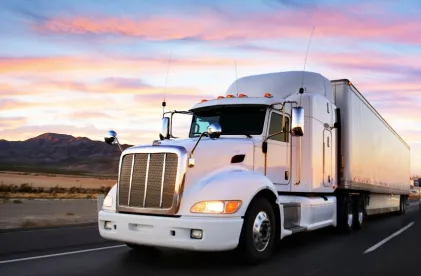Self-driving, autonomous or semi-autonomous vehicles seem everywhere, yet nowhere. Here at the Dashboard, we seem to never stop writing about them or the issues associated with them. For example, here, here, here, and here – and all those articles were in the last few months. If you were at CES, you would be excused for thinking that they were already ubiquitous. Self-Driving Technology at CES had its own location and web page with 13 exhibitors “that belong to the Marketplace “Self-Driving Technology”. VentureBeat even named autonomous vehicles one of the top trends of CES 2018. But, just how close to reality are they?
Some think that they are not close at all. Don’t believe the hype, according to Christian Wolmar. In a recent debate, Wolmar went so far as to say, “Let’s face it: we’re talking about a technology that will never happen.” Even Forbes joined in downplaying the future of the technology, noting that, “The problem is that despite hugely impressive gains in autonomous technology, the last percentage points of progress towards 100% reliability are proving difficult to achieve.” Other claimed roadblocks included “regulation, insurance, legal liability, and the almost impossible moral and ethical decisions that need to be taken by the car’s artificial intelligence system in the event of a crash, whether to mow down the line of children, pensioners or self-sacrifice into the wall.”
The all-or-nothing debate seems centered largely around purely autonomous solutions. In other words, solutions that require no driver at all, ever. The kind that leads publishers who do not normally talk about the auto industry, like Wired, to consider whether autonomous trucks are going to displace thousands upon thousands of truck driving jobs (while at the same time noting that “turnover for large truckload carriers reached a whopping 90 percent this year, and it projects a 50,000-driver shortage by the end of 2017” which would make it seem like the industry needs autonomous trucks simply to conduct the transporting that needs to be done today).
But what if what we are really talking about is a middle ground? Safer vehicles, with more autonomous features, even capable of some autonomous driving, but not a “utopian” world where no human beings even learn how to drive. Advances are made every year, every month and every day. New technology, new startups and new infrastructure appears routinely. People may not have fully autonomous pods transporting them everywhere, but every delivery is unlikely to be made by a vehicle driven by a person – every package, every pizza, mail (which seems to hardly exist anymore for most anyway). Further, the discussion is not really about what will happen by 2020. Instead, what will be on the roads in 2030, or better yet, 2040 and 2050. Compare the technology in the new model 2018 vehicles with those from 1988. In 1988, not many were predicting that in 30 years (now, 2018) people would have the ability to drive a fully electric vehicle with autonomous driving capabilities. Will I drive my car in 30 years? I don’t know. But, that might be the most interesting conclusion: at the very least, we have approached a time and place where the possibility of fully autonomous vehicles (or some derivation thereof), is just that…a possibility.




 />i
/>i
